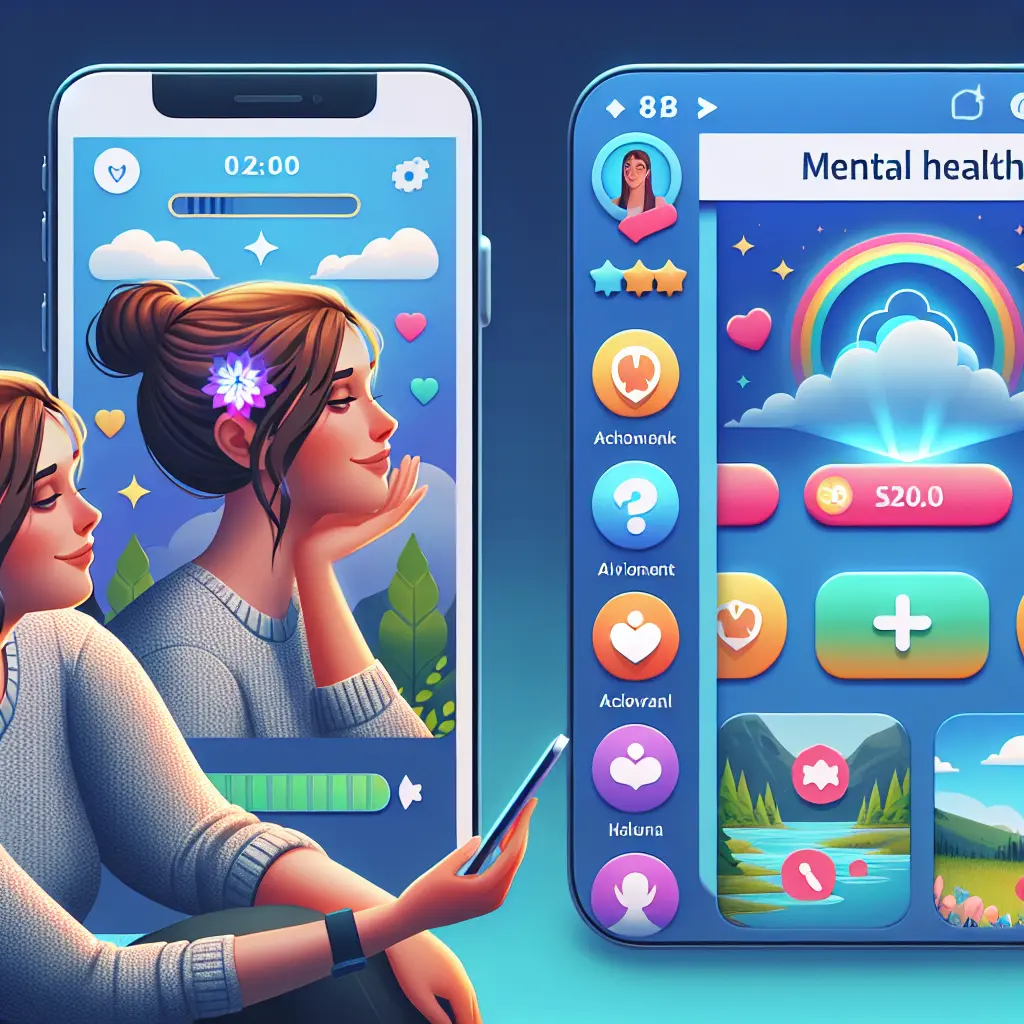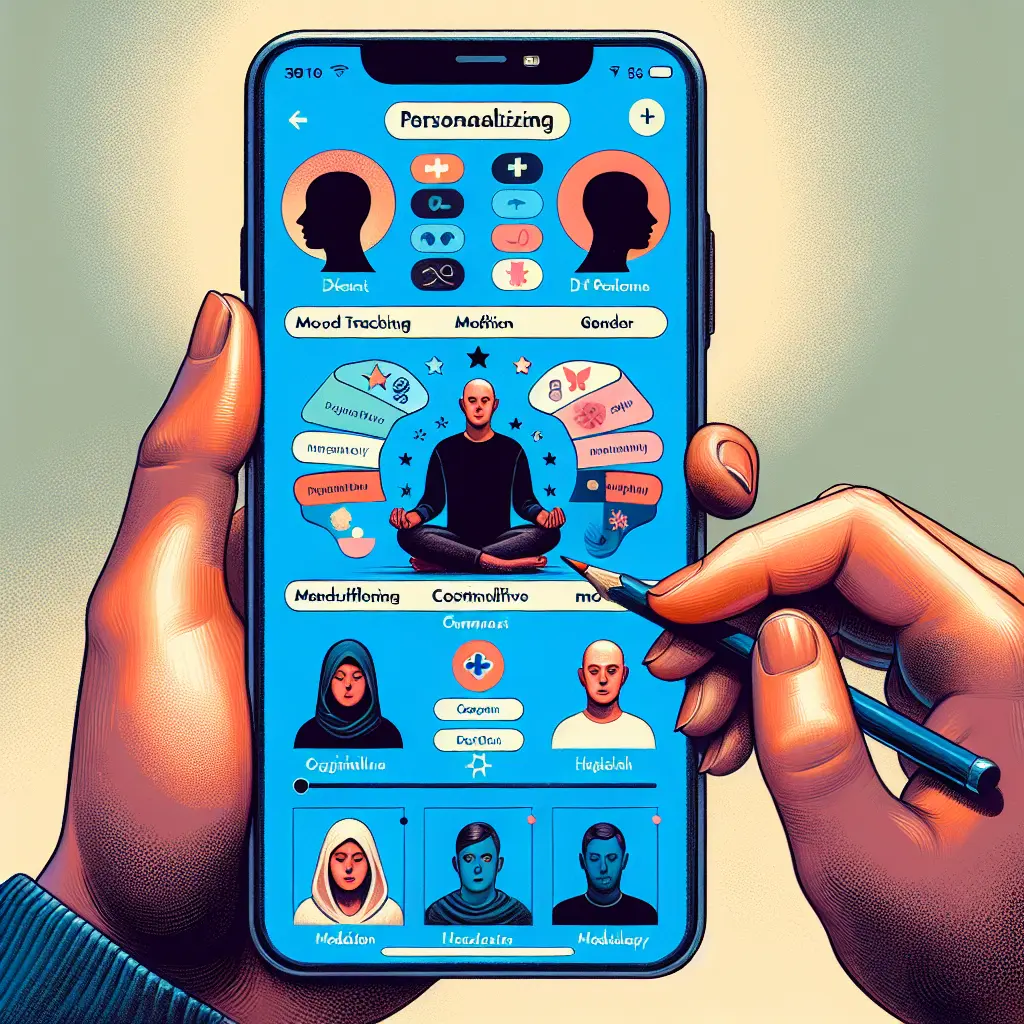In today's fast-paced corporate environment, managing workplace stress is more critical than ever. With the rise of digital wellness tools, mental health apps have emerged as pivotal resources for employee mental health, offering innovative ways to combat stress and improve overall well-being. These digital solutions, including stress management apps and mindfulness apps for work, are transforming how we approach mental health in professional settings. As businesses prioritize employee wellbeing, the integration of mental health technology into workplace wellness programs is proving invaluable.
Stress reduction apps offer accessible strategies for digital stress management, allowing employees to navigate workplace challenges with greater resilience. Furthermore, mental wellbeing apps provide an array of features—from meditation and breathing exercises to mood tracking and cognitive behavioral therapy techniques—designed to foster a supportive work environment.
Mental health app benefits extend beyond immediate stress relief; they promote long-term mental health resources for employees, helping to cultivate a culture of openness and support. Corporate wellness apps are increasingly considered essential components of a comprehensive employee wellbeing strategy, offering personalized and engaging ways to enhance mental health at work.
Reviews of the best mental health apps for work highlight their effectiveness and usability, making them attractive options for organizations committed to improving mental health in the workplace. As we delve deeper into the advantages of these digital mental health solutions, it becomes evident that stress relief technology is not just a trend but a necessary evolution in corporate wellness.
Let's explore how these innovations are shaping the future of workplace stress management and employee wellness.
Exploring the Benefits of Mental Health Apps for Workplace Stress Management
In today's technologically driven corporate landscape, mental health apps are emerging as essential tools for workplace stress management. These digital wellness tools are not only transforming employee mental health but also integrating seamlessly into workplace wellness programs. This evolution in mental health technology offers a multitude of benefits, addressing both immediate stress relief and long-term mental health resources for employees.
The Rise of Digital Wellness Tools
Mental health apps have revolutionized how we perceive stress management in professional settings. With stress reduction apps, employees gain access to innovative and accessible strategies for digital stress management. These apps offer features like meditation, breathing exercises, mood tracking, and even cognitive behavioral therapy techniques. According to a study published on Plos.org, while smartphones can potentially contribute to problematic usage and decreased well-being, when used mindfully through curated apps, they can significantly enhance mental health and stress resilience.
Benefits of Mental Health Apps in the Workplace
1. Personalized Mental Health Solutions:
Mental health apps offer personalized solutions that cater to individual needs. Employees can choose from various mindfulness apps for work, each designed to help them manage stress and improve mental health. This customization ensures that each user receives the most relevant support, enhancing the overall effectiveness of workplace wellness programs.
2. Accessibility and Convenience:
One of the most significant benefits of digital mental health solutions is their accessibility. Employees can use these apps anytime and anywhere, making it easier for them to incorporate mental wellness into their daily routines. This accessibility is crucial for maintaining consistent engagement with mental health resources for employees.
Real-World Applications and Case Studies
3. Encouraging a Culture of Openness:
By integrating mental health apps into corporate wellness programs, organizations foster a culture of openness and support regarding mental health issues. Employees are more likely to engage in discussions about their mental health, seek help when needed, and support their colleagues in doing the same.
A growing number of companies are recognizing the value of stress relief technology in the workplace. For instance, a leading tech firm implemented a comprehensive employee wellbeing app that incorporated several stress management apps. The result? An increase in employee satisfaction scores by 20% over six months and a noticeable reduction in reported stress levels.
Furthermore, an insurance company introduced mindfulness apps for work as part of its employee wellness initiative. The initiative included regular workshops and app-based challenges, which led to a 30% reduction in absenteeism due to stress-related issues.
Addressing Concerns: The Balance Between Use and Overuse
While the benefits are apparent, it's essential to consider potential drawbacks. The study by Ong et al. (2024) highlights concerns over problematic smartphone use (PSU) and its impact on psychological well-being. Therefore, while implementing these digital tools, it is crucial for organizations to encourage mindful usage and provide guidelines to prevent over-reliance on technology.
The Future of Workplace Stress Management
As we move forward into 2024 and beyond, the integration of corporate wellness apps into workplace environments is expected to grow exponentially. Reviews of the best mental health apps for work consistently highlight their effectiveness in improving mental health at work, making them indispensable tools for modern businesses committed to employee well-being.
Engagement Techniques for Implementation
To ensure successful implementation of mental wellbeing apps in the workplace, consider these strategies:
Conduct Regular Training Sessions: Offer workshops that educate employees on the benefits and usage of mental health apps.
Promote Success Stories: Share testimonials from employees who have benefited from using these apps.
Conclusion
The adoption of mental health apps for workplace stress management represents a significant shift towards more holistic employee wellness strategies. By leveraging digital wellness tools, businesses can create a supportive environment that not only enhances productivity but also nurtures employee mental health. As these technologies continue to evolve, their role in shaping the future of corporate wellness becomes increasingly crucial.
In conclusion, the integration of mental health apps within workplace stress management programs offers numerous advantages that are reshaping corporate wellness strategies. These digital tools provide:
Personalized Solutions: Mental health apps deliver tailored strategies to meet individual employee needs, enhancing the effectiveness of wellness programs.
Convenience and Accessibility: Employees have 24/7 access to mental health resources, promoting consistent engagement and the ability to incorporate wellness into daily routines.
Cultural Openness: By adopting these technologies, companies encourage a culture where discussing mental health is normalized and supported.
Real-world applications have demonstrated significant improvements in employee satisfaction and reductions in stress-related issues, highlighting the tangible benefits of these tools. However, it’s essential to balance usage and prevent over-reliance on technology, ensuring mindful engagement with these apps.
As we look towards the future, the role of digital wellness tools in corporate settings will likely expand, becoming indispensable for organizations focused on nurturing employee well-being. Implementing strategies such as training sessions, sharing success stories, and providing ongoing support can ensure successful adoption and maximize the benefits of these resources.
We encourage you to reflect on how mental health apps can be integrated into your workplace or personal life to enhance stress management and well-being. Have you experienced any positive changes using these tools? Share your thoughts and insights in the comments below!
Stay mindful, stay connected.






Leave a Comment